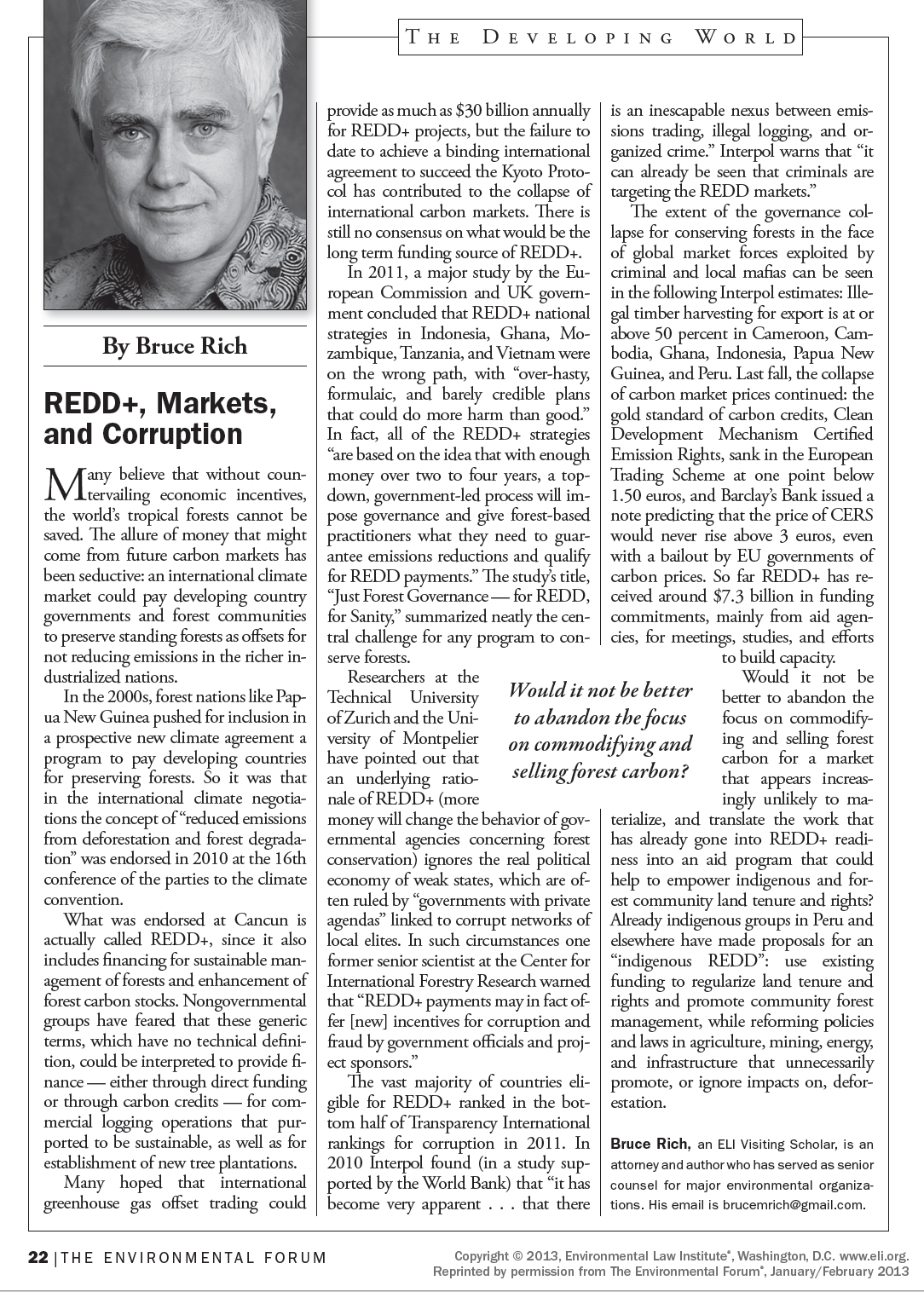- Bruce Rich
- Environmental Forum
- January-February 2013
- p. 22
The allure of an international climate market that could pay developing country governments and forest communities to preserve standing forests as offsets for not reducing emissions in the richer industrialized nations resulted in the international climate negotiations endorsing the concept of “reduced emissions from deforestation and forest degradation” (REDD+) in 2010 ....Researchers at the Technical University of Zurich and the University of Montpelier pointed out that the rationale of REDD+ (more money will change the behavior of governmental agencies concerning forest conservation) ignores the real political economy of weak states, which are often ruled by “governments with private agendas” linked to corrupt networks of local elites....One former senior scientist at the Center for International Forestry Research warned “REDD+ payments may in fact offer [new] incentives for corruption and fraud by government officials and project sponsors.” Would it not be better to abandon the focus on commodifying and selling forest carbon for a market that appears increasingly unlikely to materialize, and translate the work that has already gone into REDD+ readiness into an aid program that could help to empower indigenous and forest community land tenure and rights?



